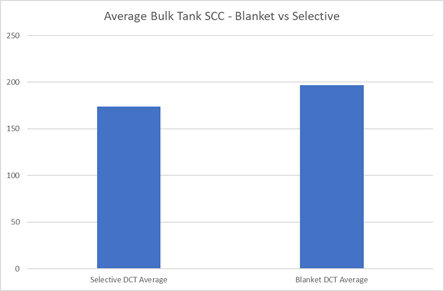Recently the Franklin Vets Udder Health team sent out a survey seeking insights on the changes to rules around dry-cow prescribing. We received survey responses from around a third of our farm clientele which was great as it gave the survey results plenty of significance. Thanks to all who responded and congratulations to our three lucky winners.
After pulling together all of the responses we have been able to tease out some key stats, facts and themes which is very useful for us as mastitis advisors and for you as an industry of farmers.
Here are some of the key take-homes:
- Farmers are very aware of the industry's changes around prescribing of dry-cow therapy
- 53% of farms in the practice are already using a Selective dry-cow strategy (i.e. not all cows receive antibiotics at dry-off)
- 63% of farms are using teatseal in their herds at dry-off, predominantly this is alongside a Selective dry-cow approach.
- A strong majority of farmers (67%) have no major concerns using Selective DCT strategies as required.
- Those farms that do have concerns about moving to a selective DCT approach generally don’t consider that this change in strategy will provide an overall better result to udder health.
- Herd testing is still by far the preferred method for diagnosing mastitis infections in dairy cattle and will be the preferred method of determining dry-cow treatments for individual cows moving forward.
- A growing number of farms are using Franklin Vet tech teams to help with the insertion of dry-cow/teatseal in their herds and are also focusing more on staff training to improve outcomes of the whole dry-off process.
Some statistics from the current season to-date comparing the strategies: (See graph to the right)
- Selective DCT avg season to date BTSCC - 173,000 (70 farms included)
- Blanket DCT avg season to date BTSCC - 196,000 (64 farms included).
All industry stakeholders, including yourselves as farmers have important roles to play in preserving the efficacy and accessibility of antibiotics on New Zealand dairy farms. Antibiotics play an important role in the management and maintenance of udder health on-farm, which is critical to ensuring the continued supply of a high-quality and high-value product.
As we navigate this change, we would encourage you to work closely with your veterinarians, industry partners, and advisors who will ensure you are provided with the best tools, information and strategies to achieve on-going success both in business and with your herds udder-health.
Dr Greg Lindsay BVSc Farm Vet & Regional Mgr Kopu




